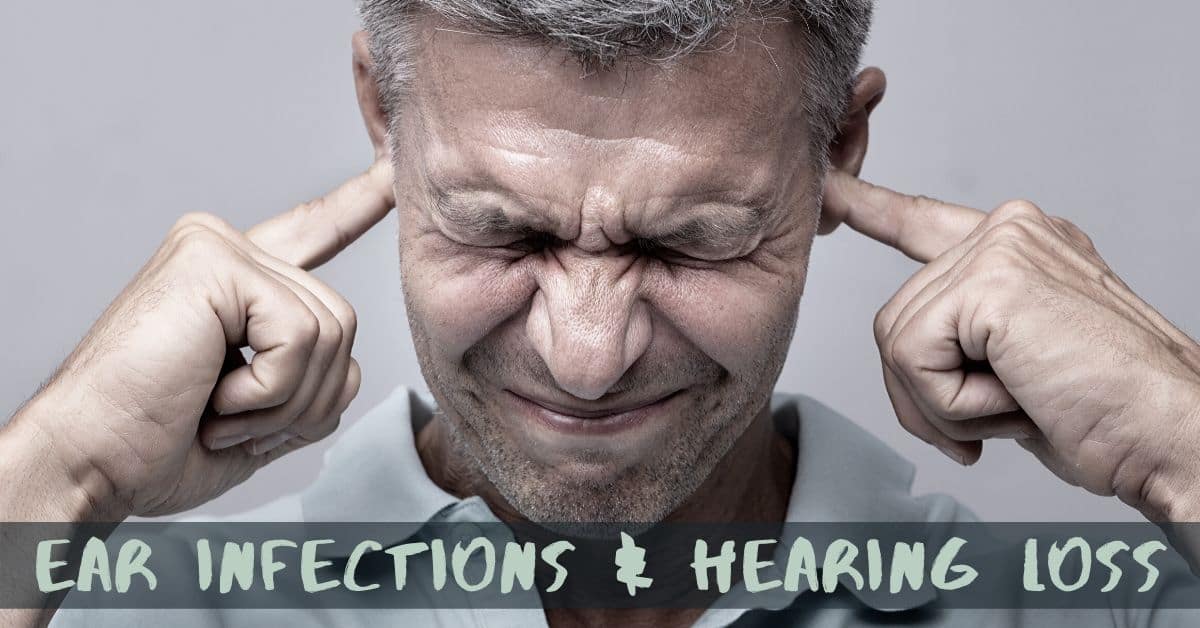
- Common Misconceptions That Delay Hearing Loss Diagnosis - June 6, 2025
- Signs Your Earwax Buildup Needs Professional Attention - May 29, 2025
- Preparing for a Hearing Test and What You Should Bring - May 16, 2025
Those who currently have ear infections or those who had them as a child will understand how painful they can be. Although the common term “ear infection” has a wide range of clinical diagnoses, what they have in common is an experience of debilitating pain. Fortunately, most ear infections can be cured easily enough, allowing that pain to be relieved before too long. For children and adults alike, avoiding ear infections is a top priority. Before considering how to prevent these loathsome conditions, let’s take a moment to understand the different types of ear infections, as well as the relationship they can have with hearing loss. Although most instances of hearing loss resulting from ear infections are temporary, they are still a cause for concern when it comes to not only your ear health but your hearing health, as well.
Common Types of Ear Infections
Ear infections tend to be categorized according to the part of the ear canal in which they take place. The most common form of ear infection is commonly known as swimmer’s ear, though the technical term is otitis externa. In this case, water or other fluid is caught in the ear canal. Another cause is inflammation of the ear canal due to illness or another associated condition in the outer ear. This condition can be remedied in a number of ways, including a homeopathic solution of vinegar, hydrogen peroxide, or rubbing alcohol. Children are particularly susceptible to this type of ear infection because not only do they tend to have underdeveloped immune systems, but they also have ear canals that tend to be more horizontal, trapping fluid more easily within. The second most common type of ear infection is located in the middle ear, and is officially called otitis media. This form tends to find swelling and pus blocking the inner ear, and it can lead to temporary hearing loss as a result. In serious cases, this type of ear infection can lead to fluid buildup behind the eardrum, and this fluid blocks hearing ability, as well.
Preventing Ear Infections
Although some ear infections are inevitable, there are steps you can take to prevent them in many cases. Take care of your ears after swimming. Particularly when swimming in a body of water with a natural source, it is possible to find that the water has bacteria that can grow inside the ear if it becomes trapped there, even temporarily. Tipping your head to drain the water out your ears after swimming can help, and gently drying them with a clean cloth or towel can help, as well. Wearing earplugs or a tightly fitted swimming cap can help prevent water from getting into the ears in the first place. If you find that an ear infection is setting in, don’t hesitate to visit the doctor right away. Antibiotics, when administered quickly, can stop bacteria growth within the ear before it has a chance to become an infection. Those who have recurring ear infections can consult with their doctor to devise a plan to prevent ear infections in the future.
Ear Infections and Hearing Loss
Those who have ear infections can find that they lead to a muffled, sloshing, or muted effect on hearing ability, but that form of hearing loss tends to be temporary. If you encounter hearing loss of this kind, the first step is to consult with a doctor to make sure that the condition is not more serious. With advice from a doctor, you can find a solution to make sure the hearing loss is only temporary. In more serious cases, the eardrum can build up a scar, otherwise known as tympanosclerosis. In these cases, it will be wise to coordinate with a doctor and your hearing health professional to determine if more serious effects have taken place on your hearing ability, possibly requiring the treatment of hearing aids. However, if you take the precautionary steps to avoid ear infections and are quick to seek treatment if you do develop one, then you should not have to worry about permanent hearing loss as a result of an ear infection. Your doctor is the first line of recourse for these painful conditions should they arise.
